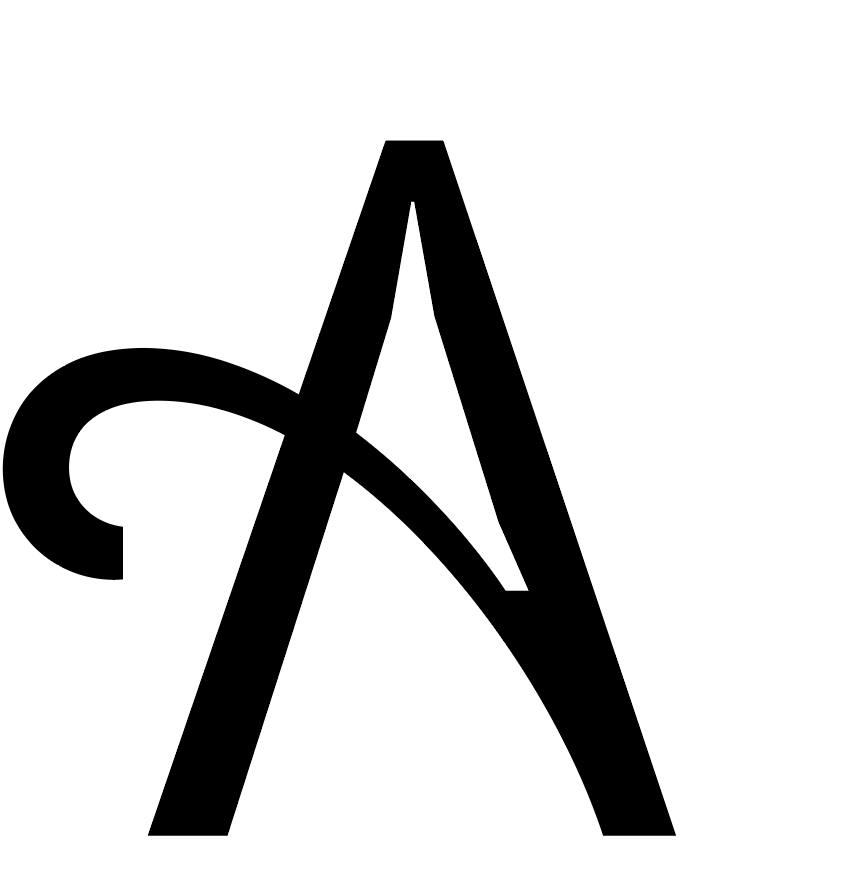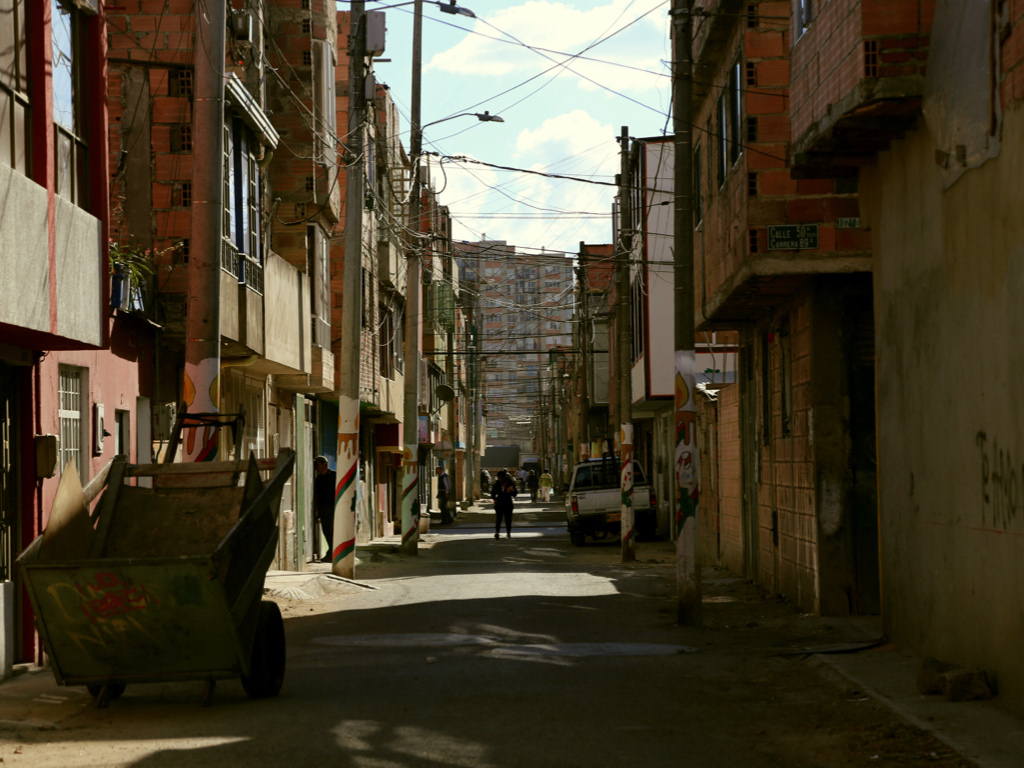
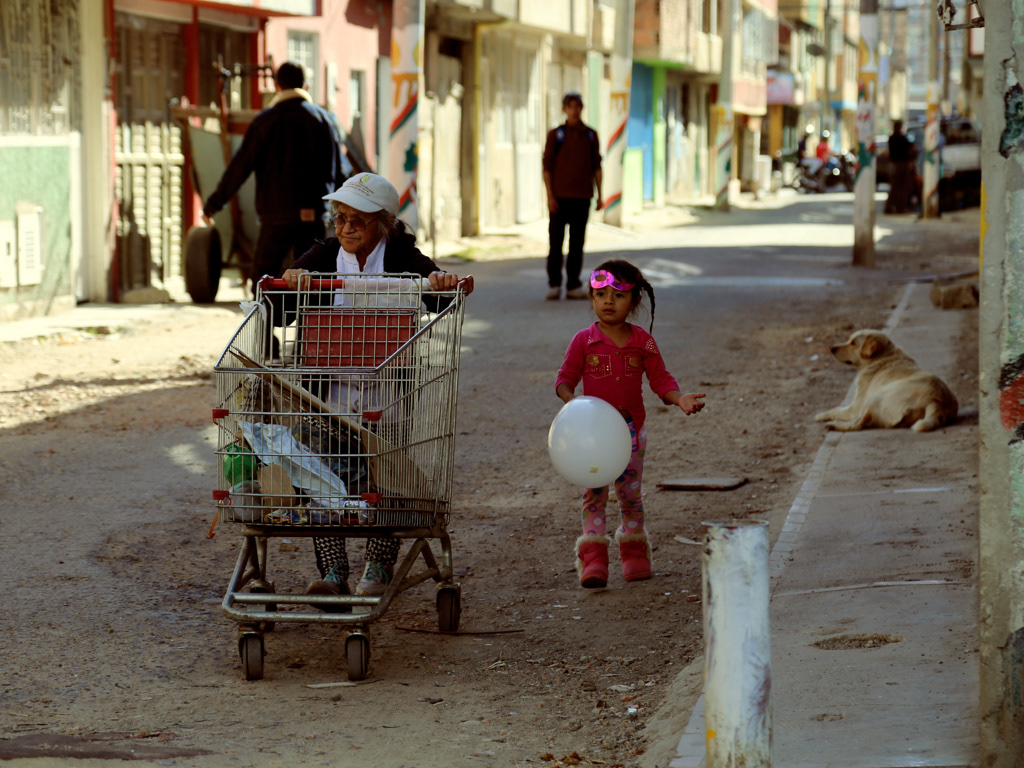
Background
Colombia has a population of about 50,000 recycler families who work in the main cities. Experiences and comparative research have shown that they consider themselves to be a kind of social class associated with "sub-human characteristics". Part of the problem lies in the powerlessness to recover their human identity as a person, and within the family and the social group. However, while many experts or decision makers have pointed out the magnitude of this social problem, few solutions have been provided. This is due to the complexity of the problem. It is primarily a family problem: recyclers work as a family day and night (children go with their parents at night; they often sit and sleep inside the cart covered and protected by "selected trash"). Consequently, precarious family working conditions and early experience of identifying dirtiness with family status and activity among children often lead to deviant behavior and even lower levels of education. Secondly, it is an individual problem that affects each member of the family from childhood and makes them more vulnerable, particularly women and children. It is a social problem: such working conditions and status lead to poor self-esteem and self-perception, in addition to the lack of social security and low cultural and educational levels. It is also an economic problem due to the limited possibilities of an individual to collect enough garbage daily without having equipment, places for storage, diversity of the recycling market, information and access to credits to form small businesses for recycling activities.
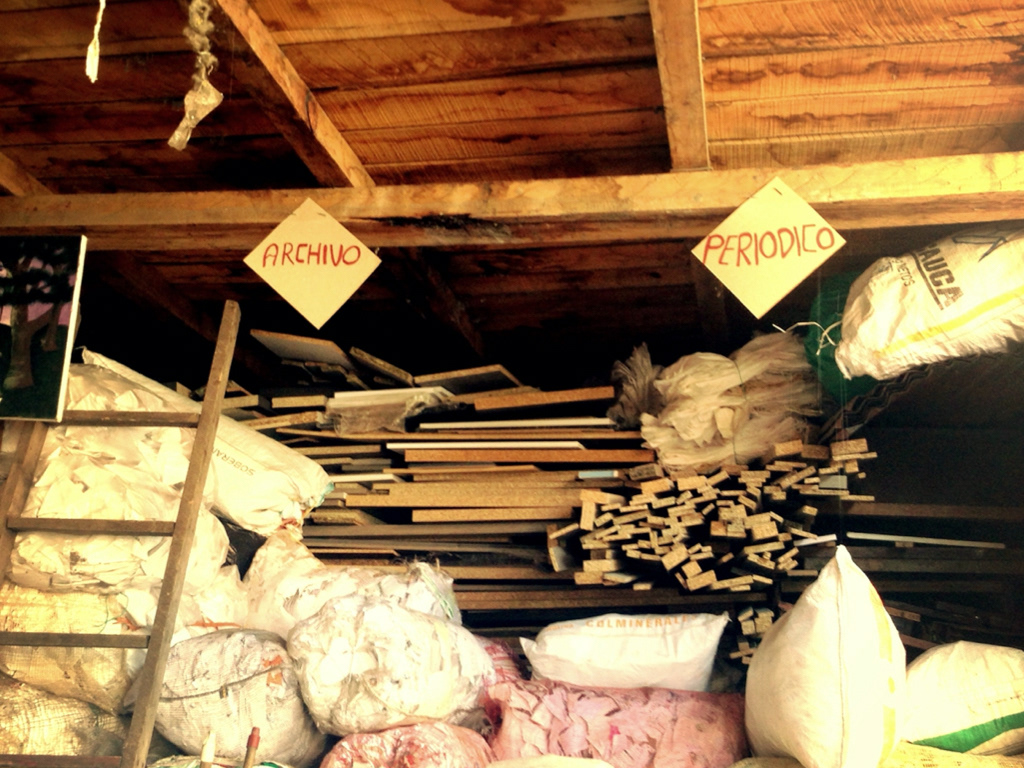
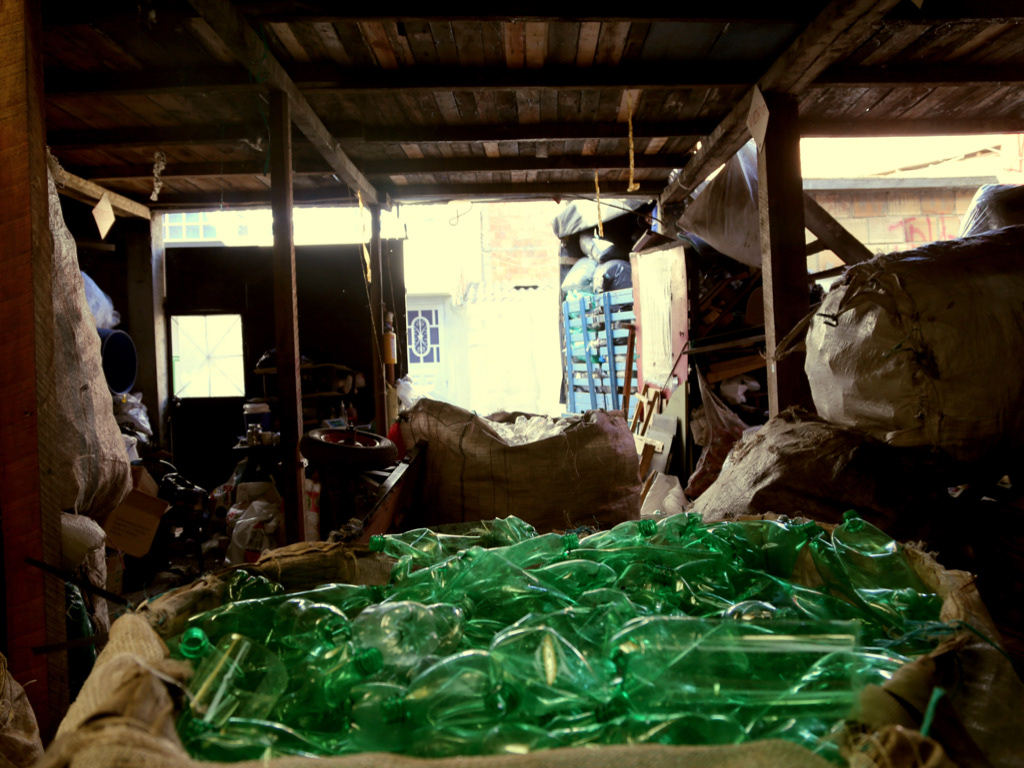
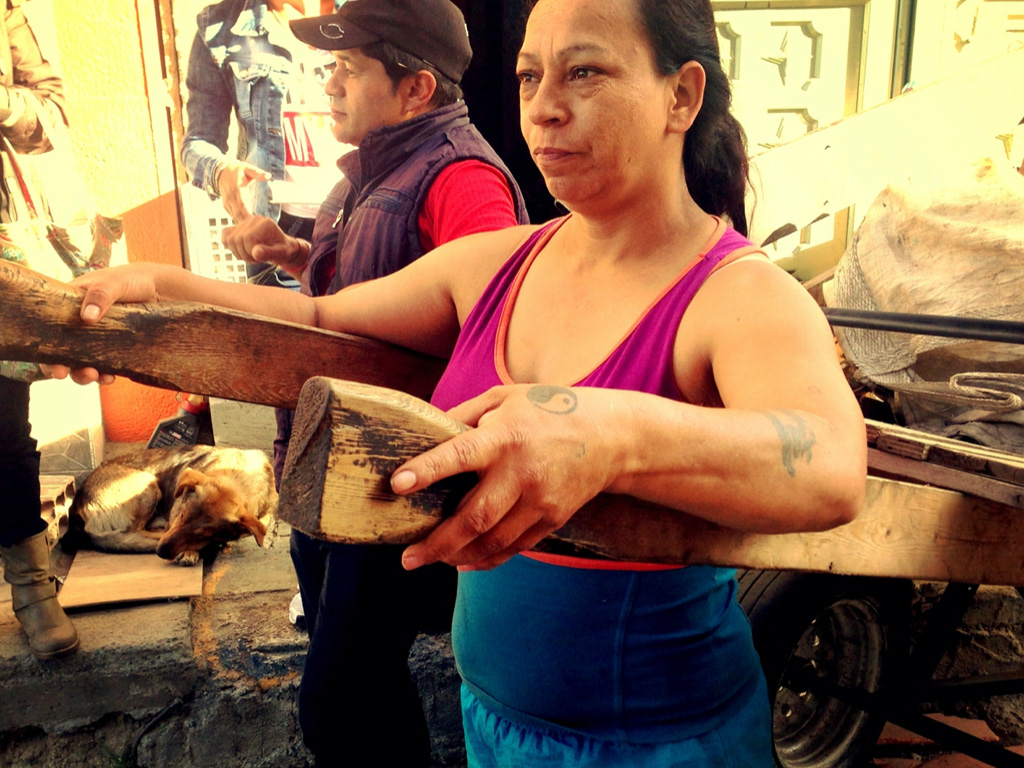
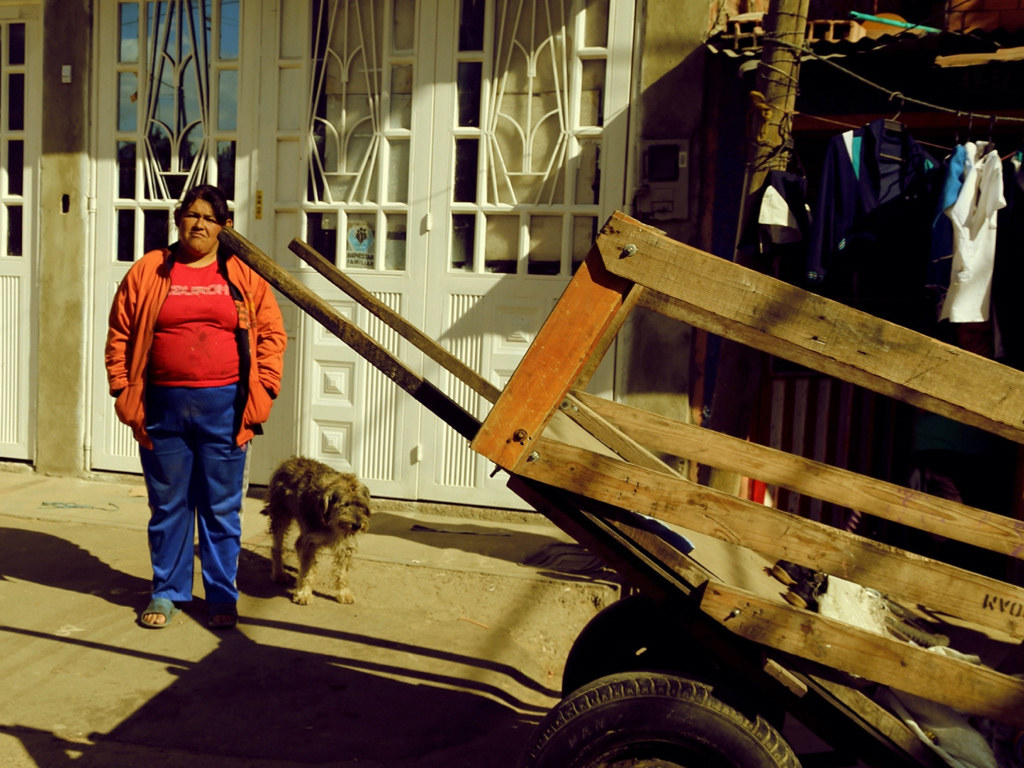
The workshop
In collaboration with ECOWORKS the Design Department organized a two-day Co-creation workshop at LA ESCUELA TALLER DE BOGOTÁ to make visible, dignify and recognize a significant number of the recycler community in the city of Bogotá. The workshop was carried out in two sessions: The first includes the entire process of observation, planning, sketching and prototyping of possible solutions. The students were divided into groups focused on three specific themes: 1. Comfort & organization, 2. Communication & services and 3. Identity & personalization. In the second session we participated in the PIMP MY CARROÇA event http://pimpmycarroca.com/ and worked in three Pit Stops. Every Pit Stop had a different focus and worked together with the recycler on specific solutions for their needs.
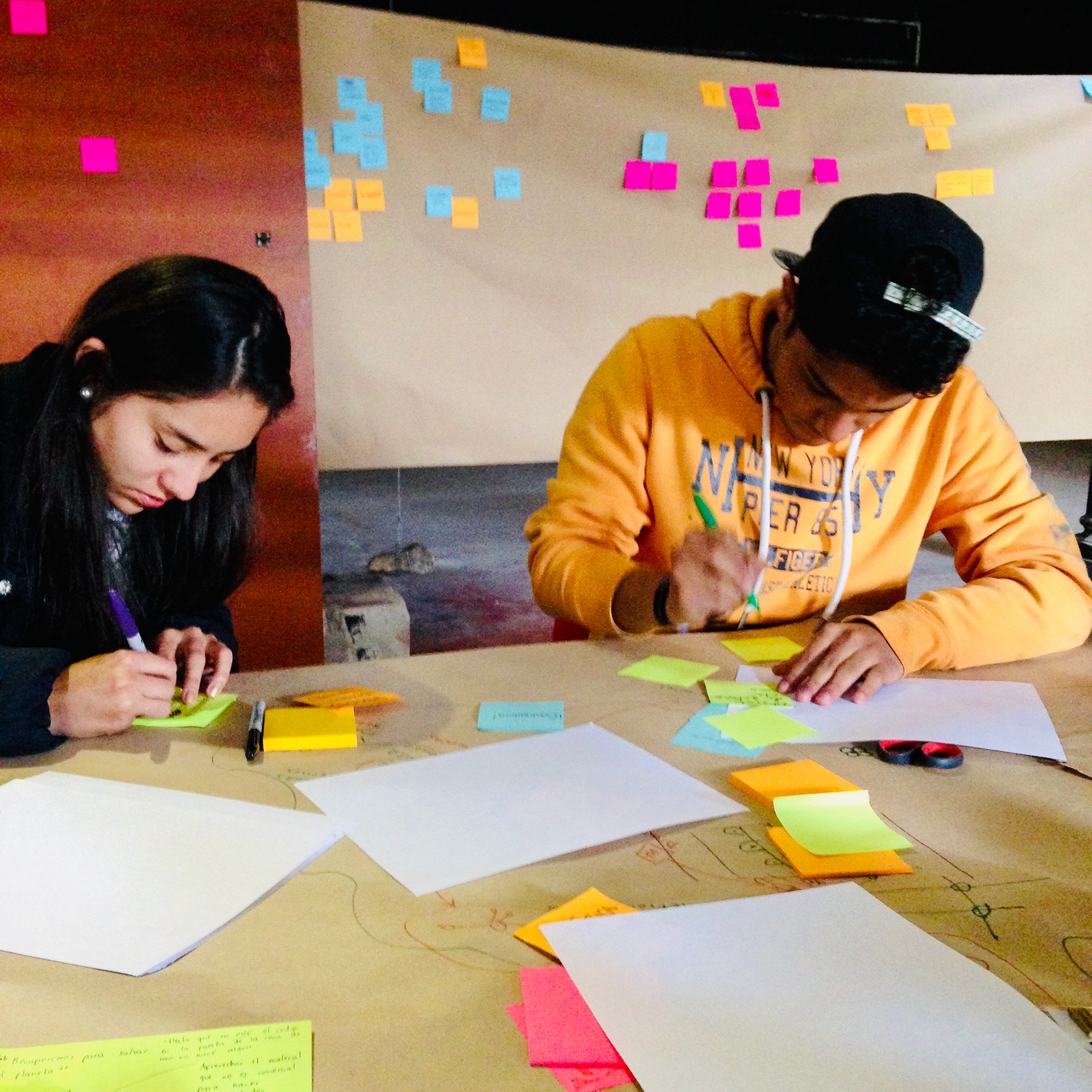
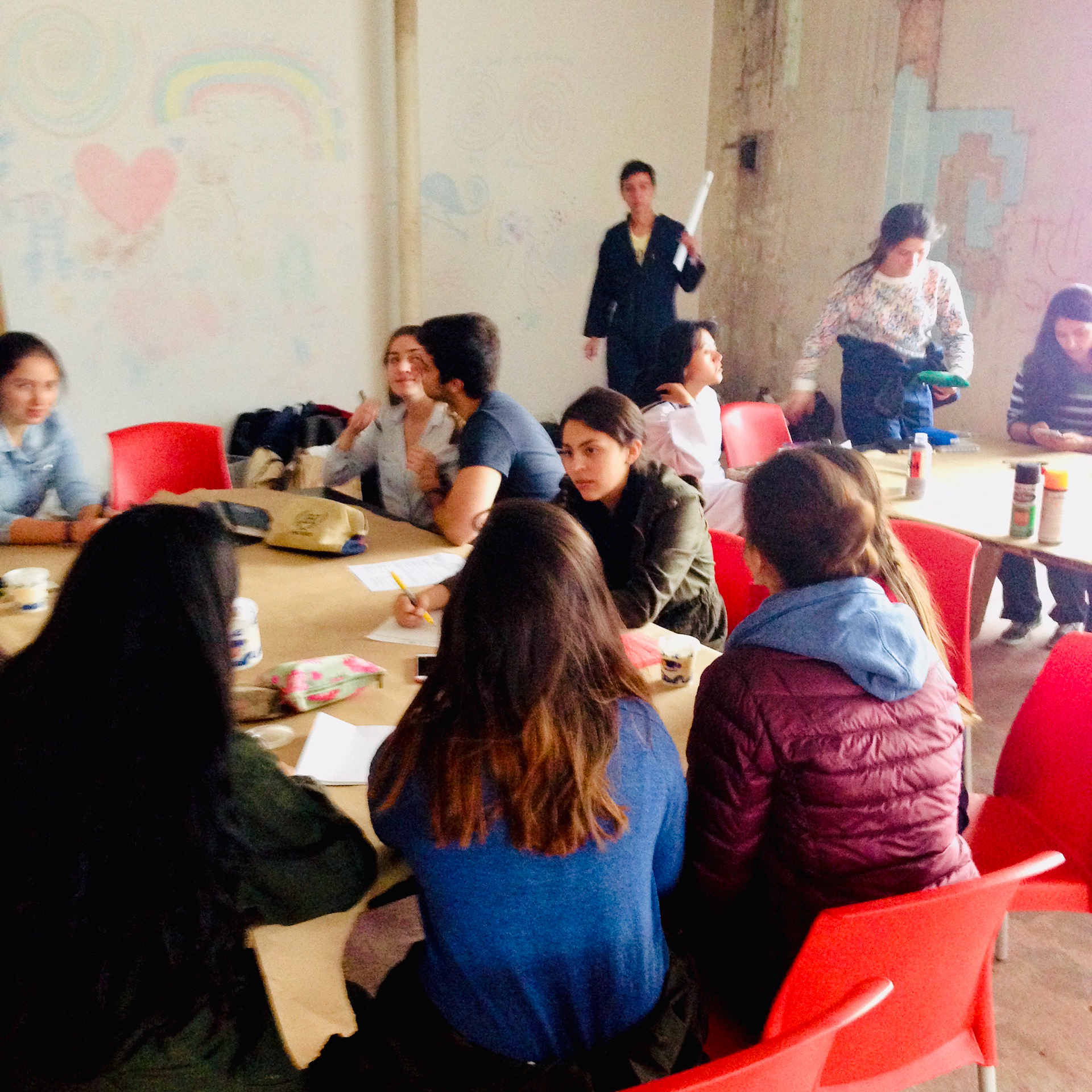
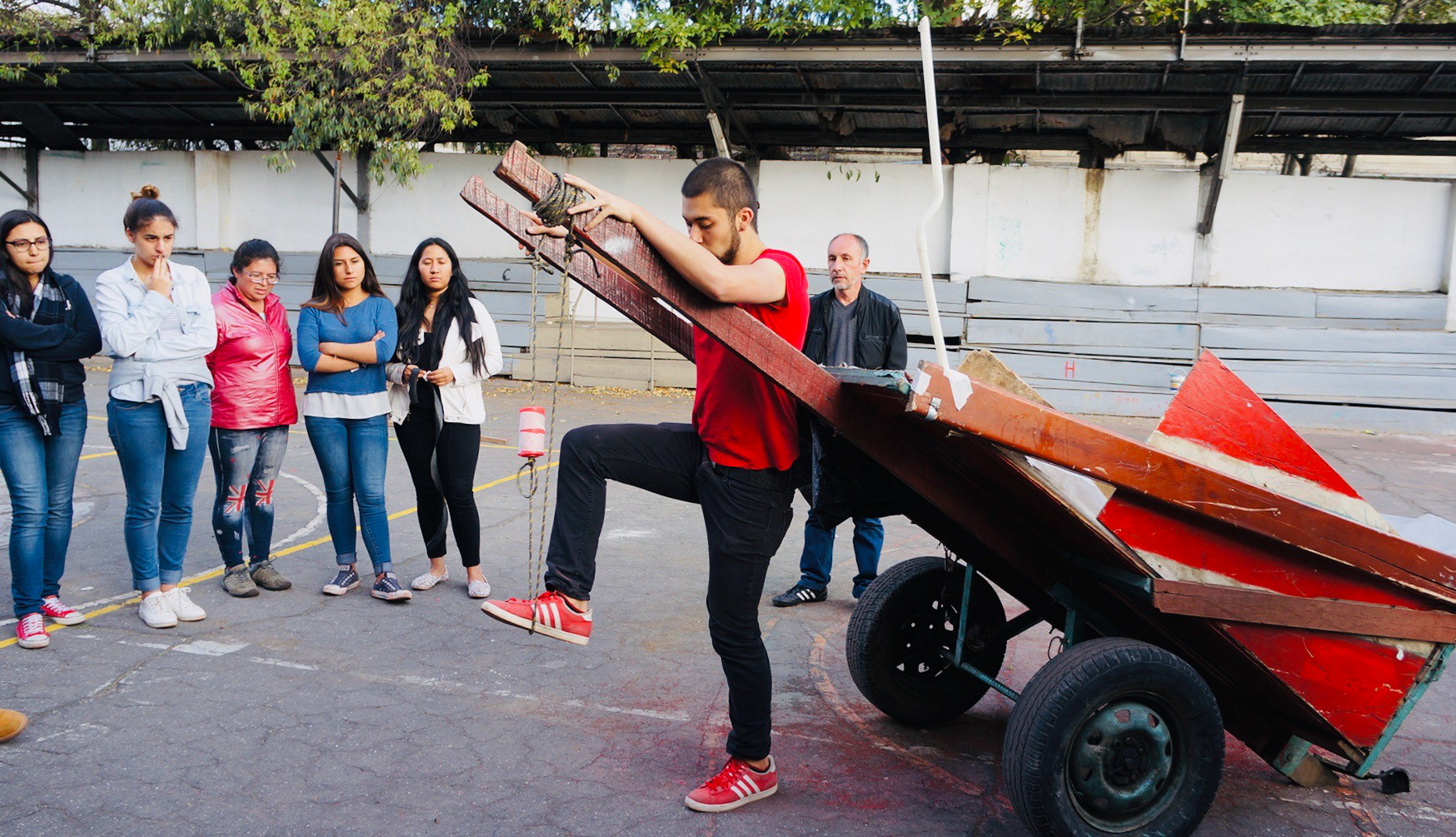
Prototyping
PIT STOP 1 - Comfort & organization
How can we improve the comfort and use of the handcart? How can the different recycle materials be better organized? What will the cart of the future look like? How can the visibility and the safety of the recyclers on the road be improved?
Professors: Christiaan Nieman & Mario Pinilla
Students: ....
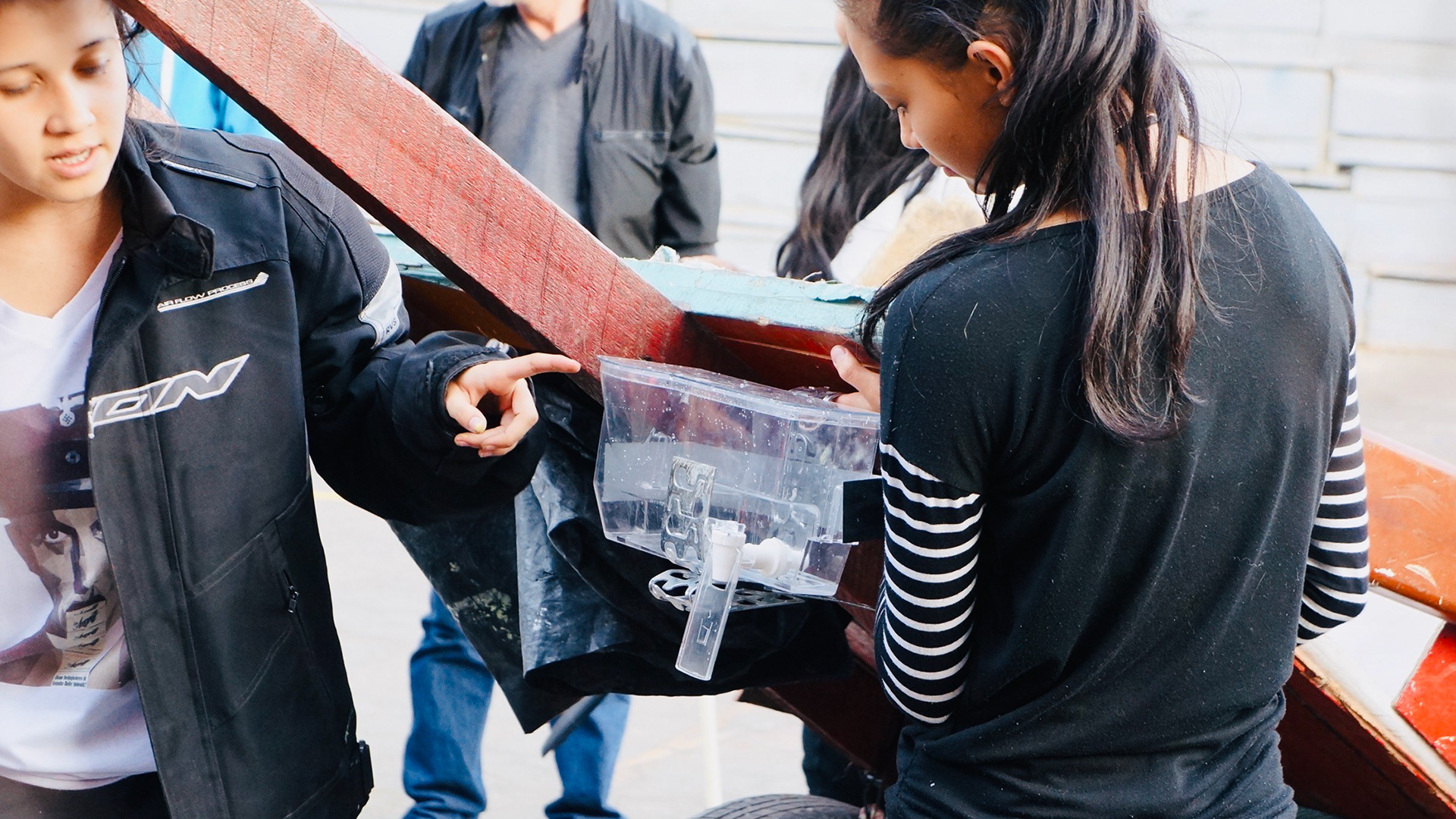
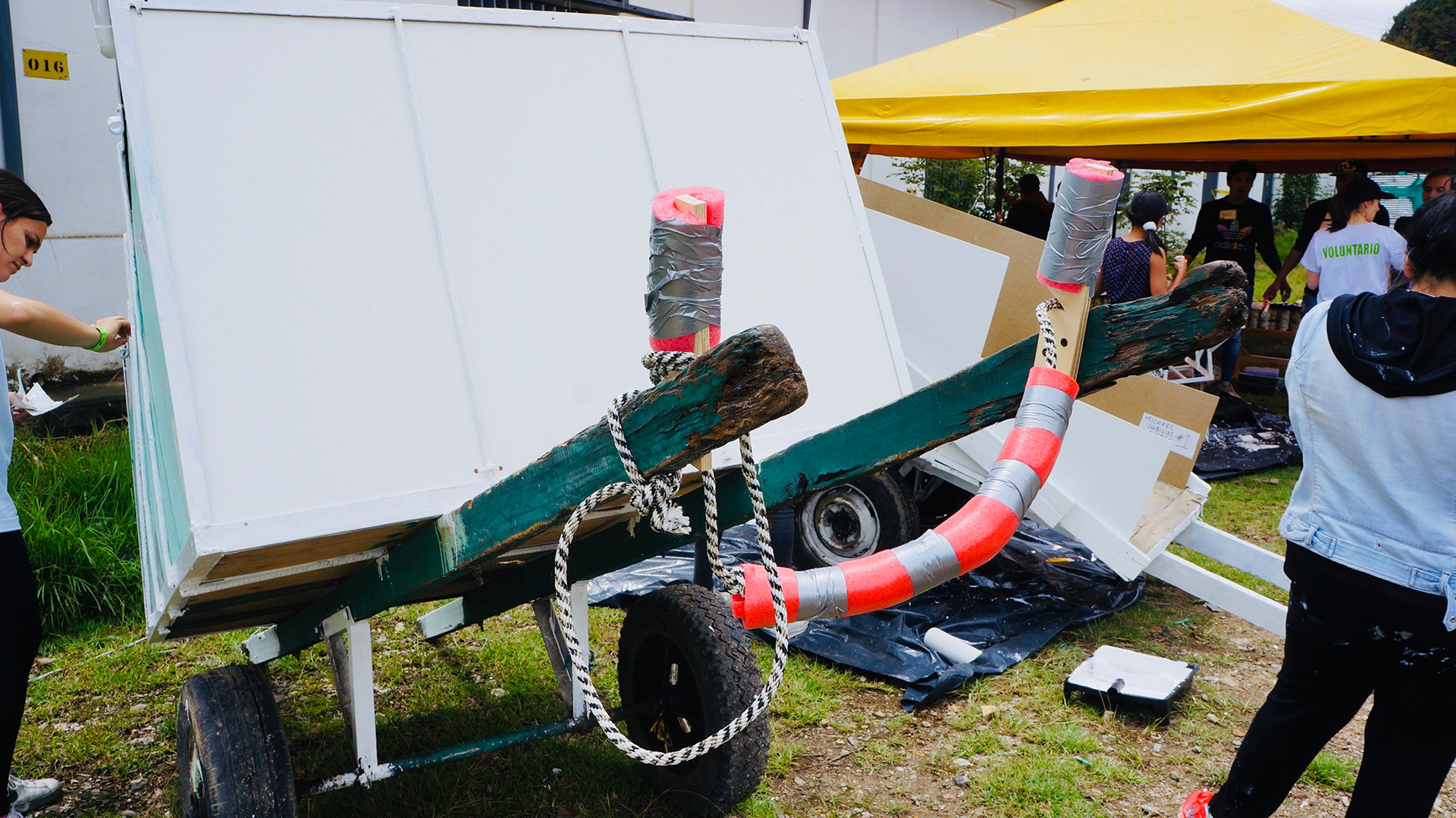
Pit Stop 2 - Communication & services
How can we improve the collection services of recyclable products through communication strategies? For this we ask ourselves: How is the way in which the user recycles consistent with the practices of the recycler? How can the recycler communicate with the user and vice versa? How can we build trust between the recycler and the user? In order to improve communication between recyclers and users, to build mutual trust and at the same time to strengthen the self-esteem of the recyclers, we have developed a communication strategy that provides recyclers with easily implementable ideas and provides them with tools for implementation. A set of 100 green ribbons and easy-to-copy handouts can be placed in the mailboxes of the respective pick-up area. The residents, in turn, should use the bow to mark the properly sorted recycling sack. When collecting, the recycler knows that there are only recyclable, washed materials in the sack and therefore they don´t have to search through the sack for recyclable material. The ribbon thus becomes a symbol of mutual respect and recognition of the work of both sides. In addition, the recyclers received a tetrapak with chalk, from which they could cut stencils and mark the street with hearts. So the residents know that the recycler was there. The gray streets of Bogotá have a warm message to all citizens in the morning. With the hashtag #corazonesenconcreto (hearts in concrete), residents were called upon to show more respect and heart for those people who take care of waste every day so that it becomes material and not waste.
Professors: Annelie Franke & Miguel Navarro
Students: Brenda Cadena, Andrea Castañeda, Angelica Castillo, Juan Carlos Guevara, Samuel Iguaran, Isabela Loaiza, Catalina Ramírez, Daniel Sanchez
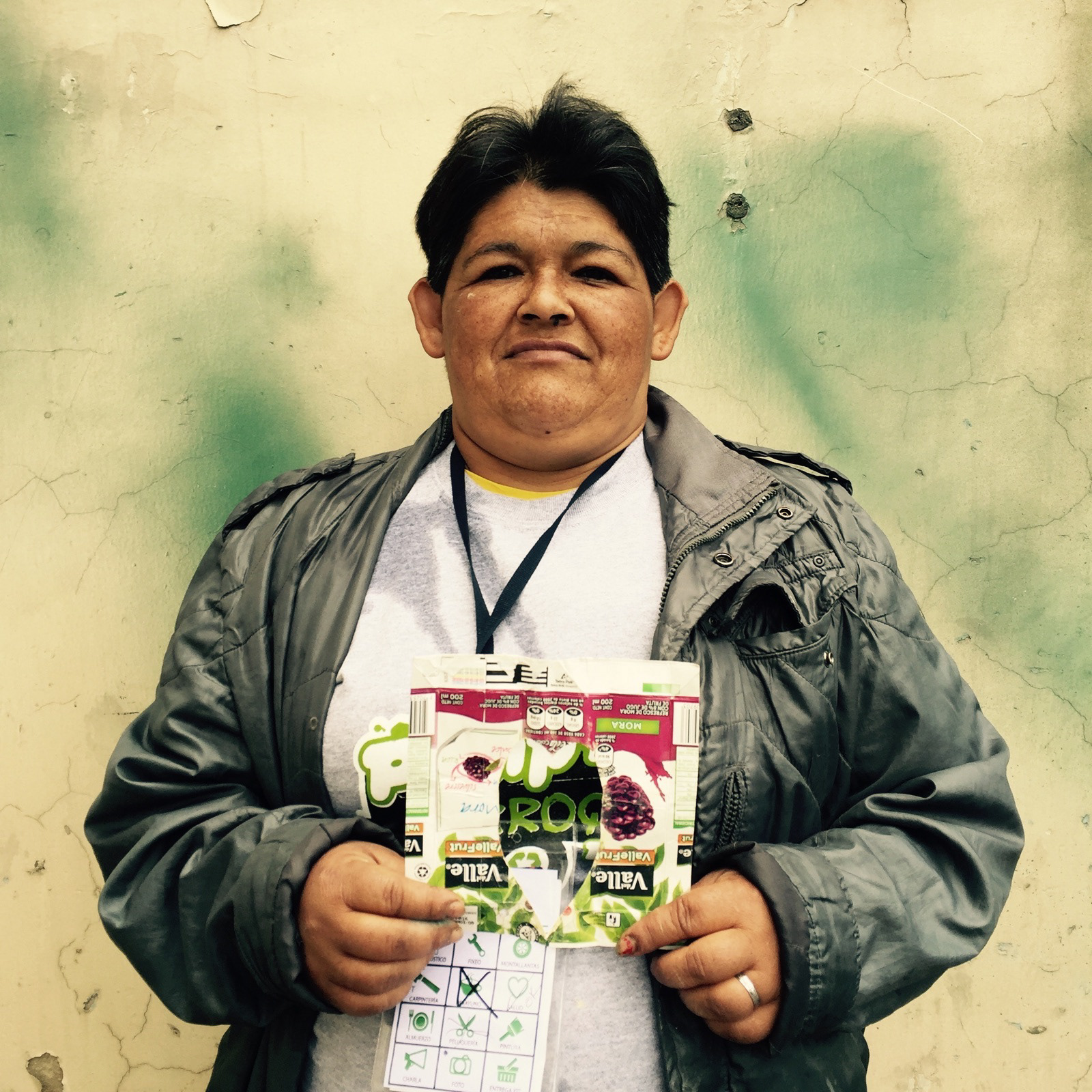
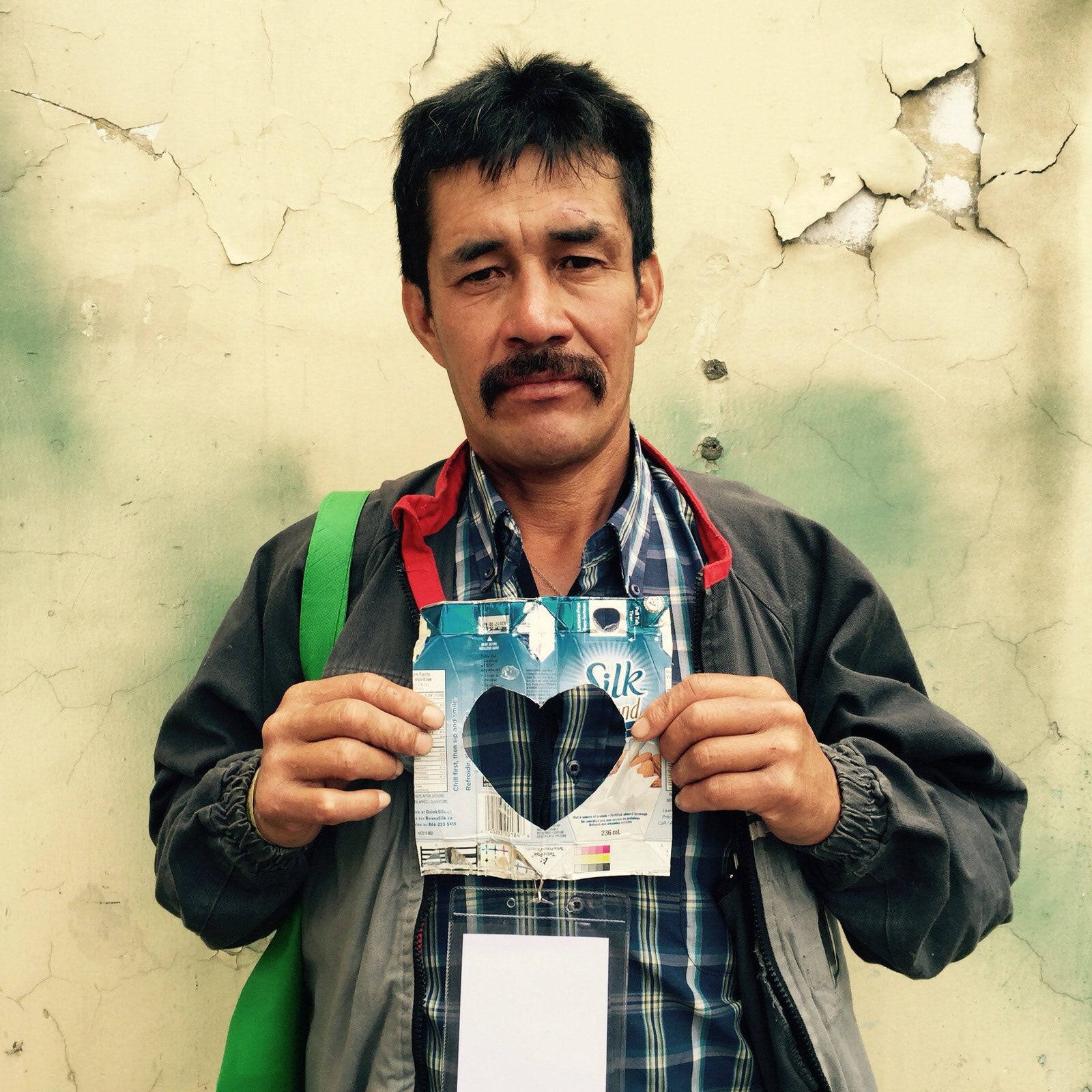
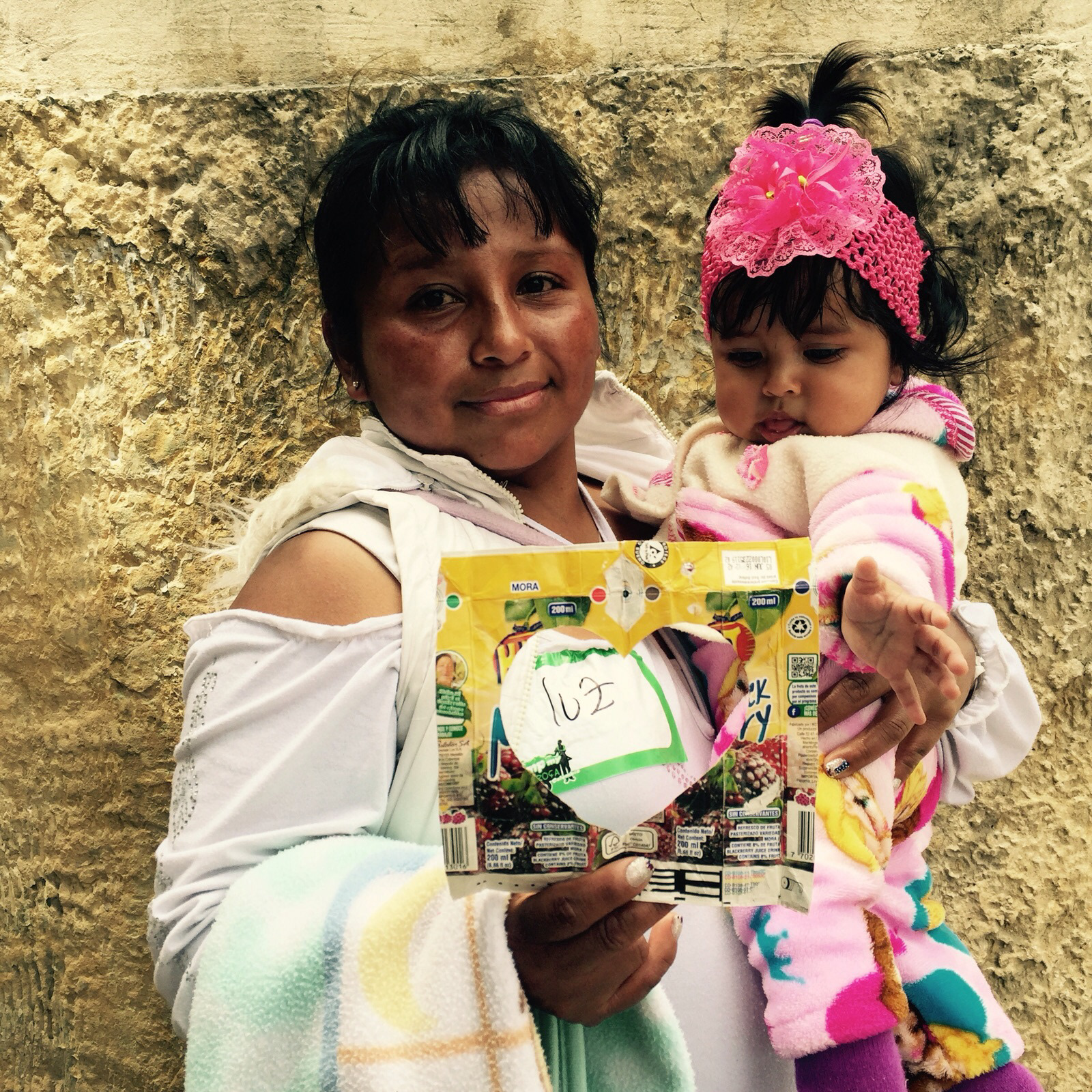
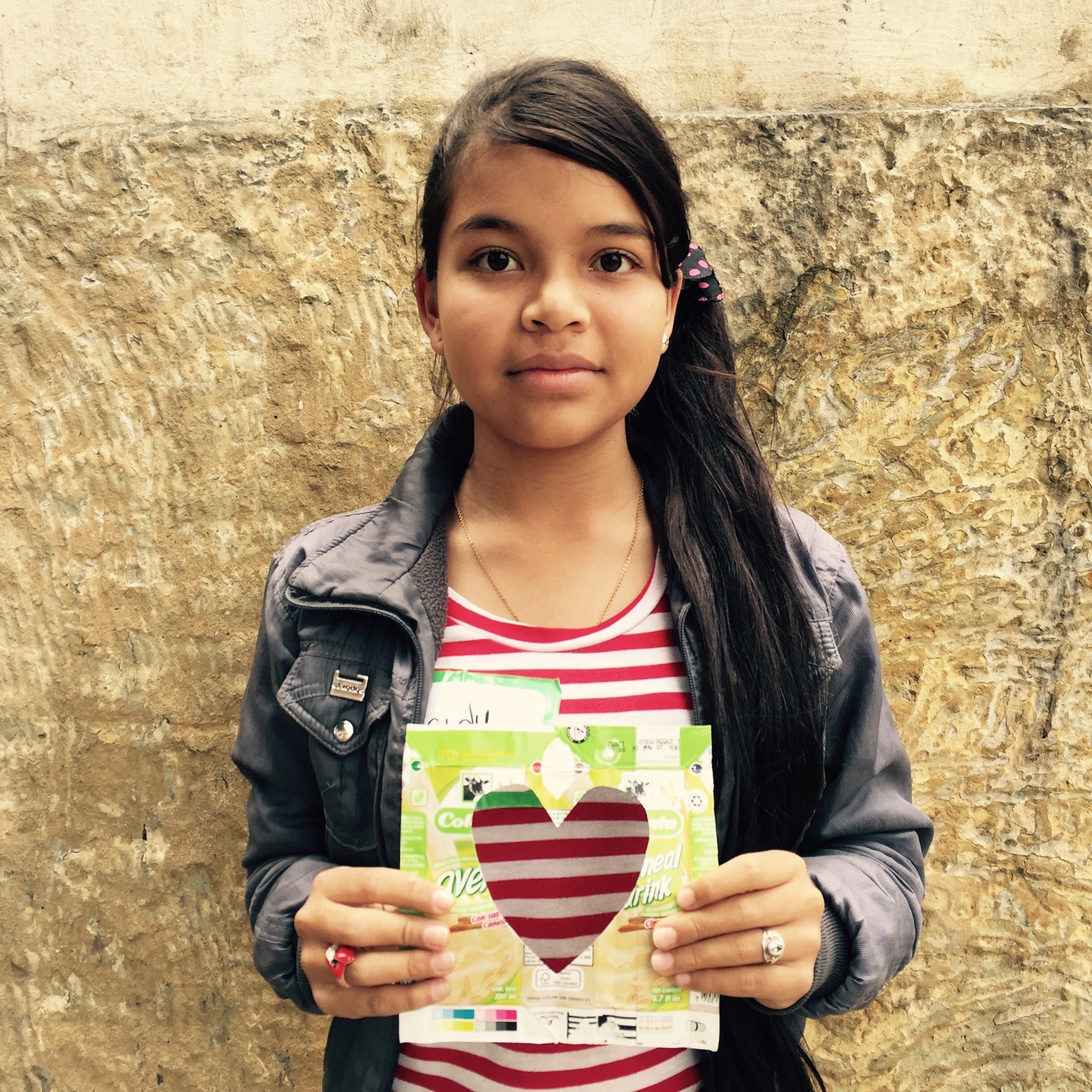
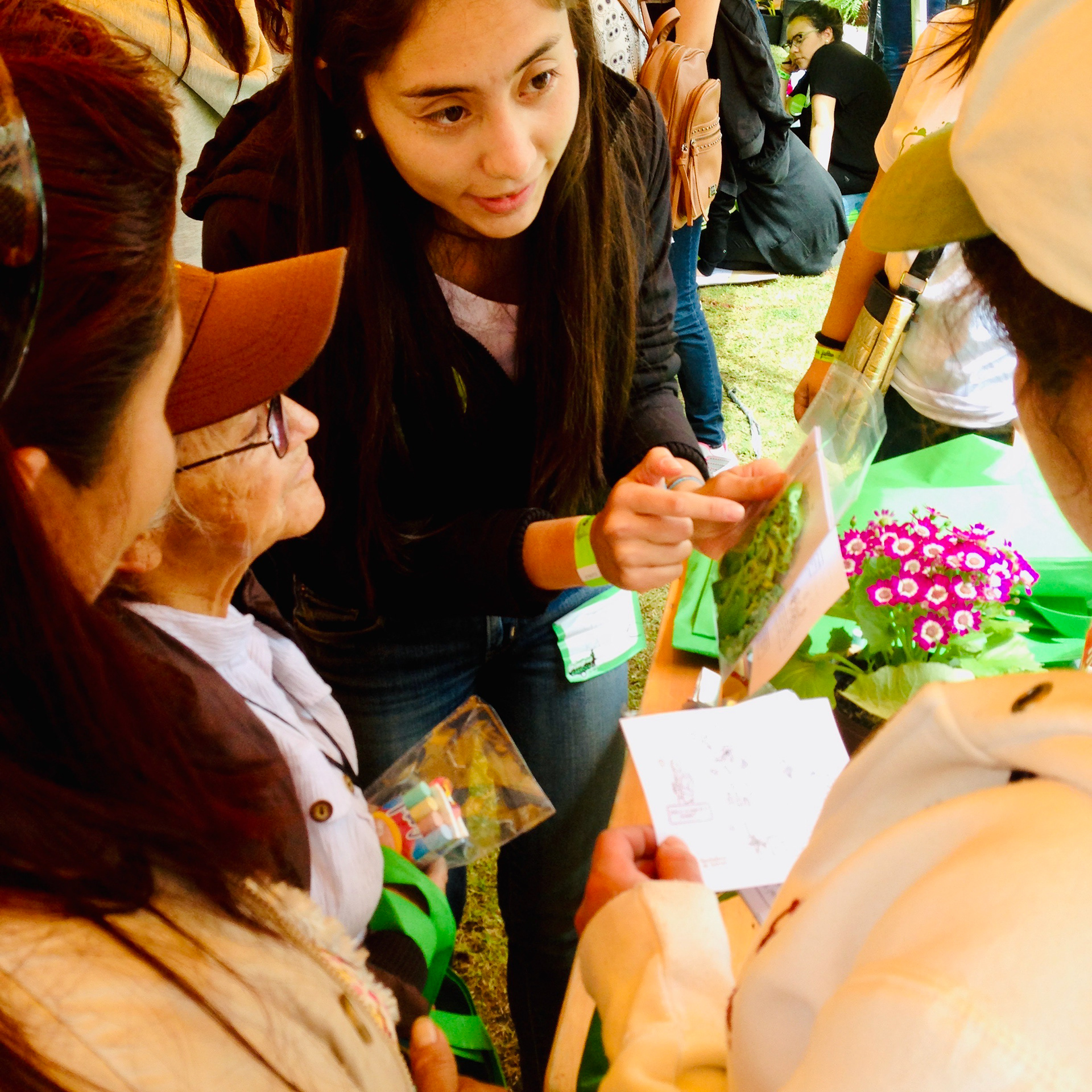
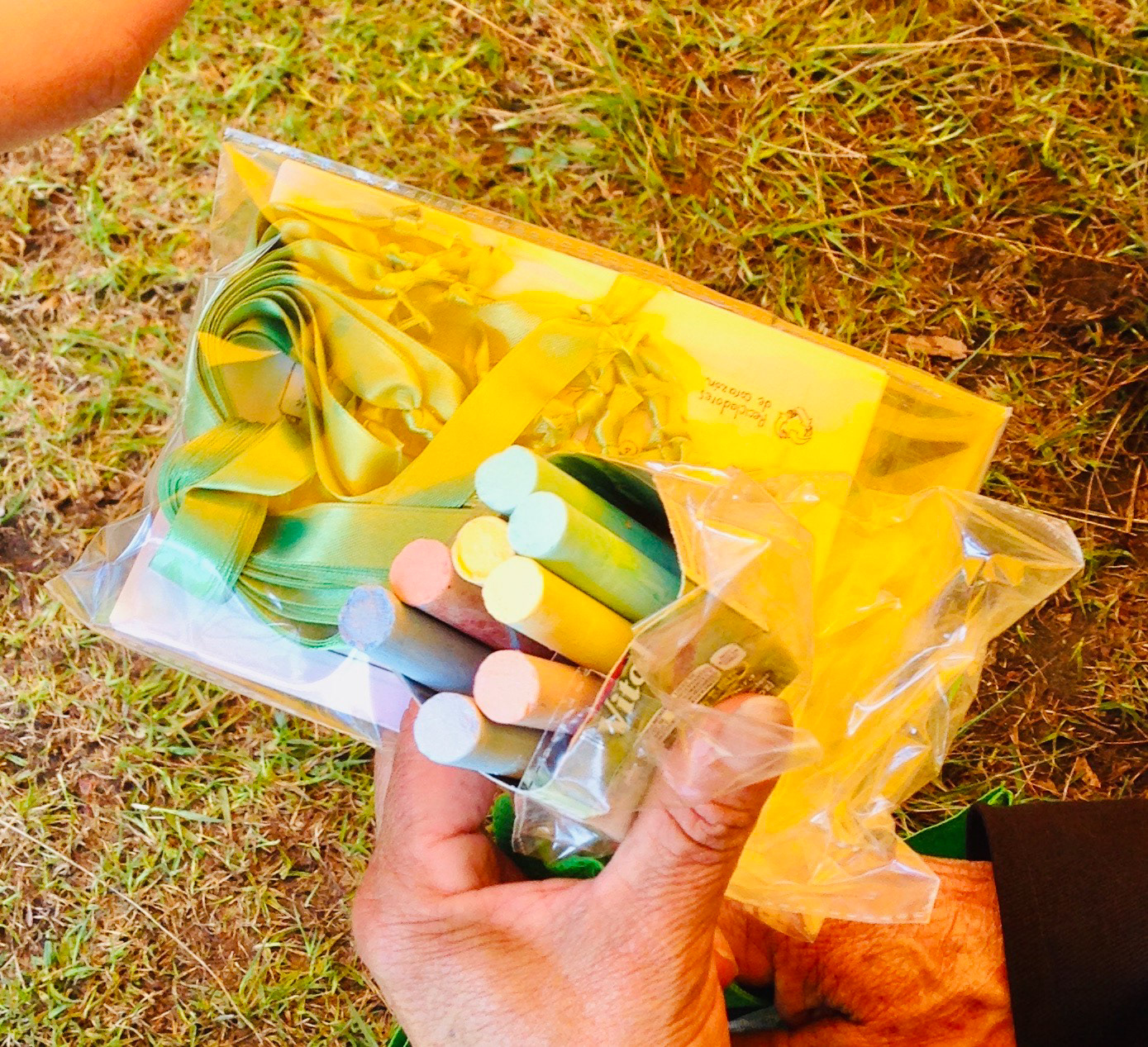
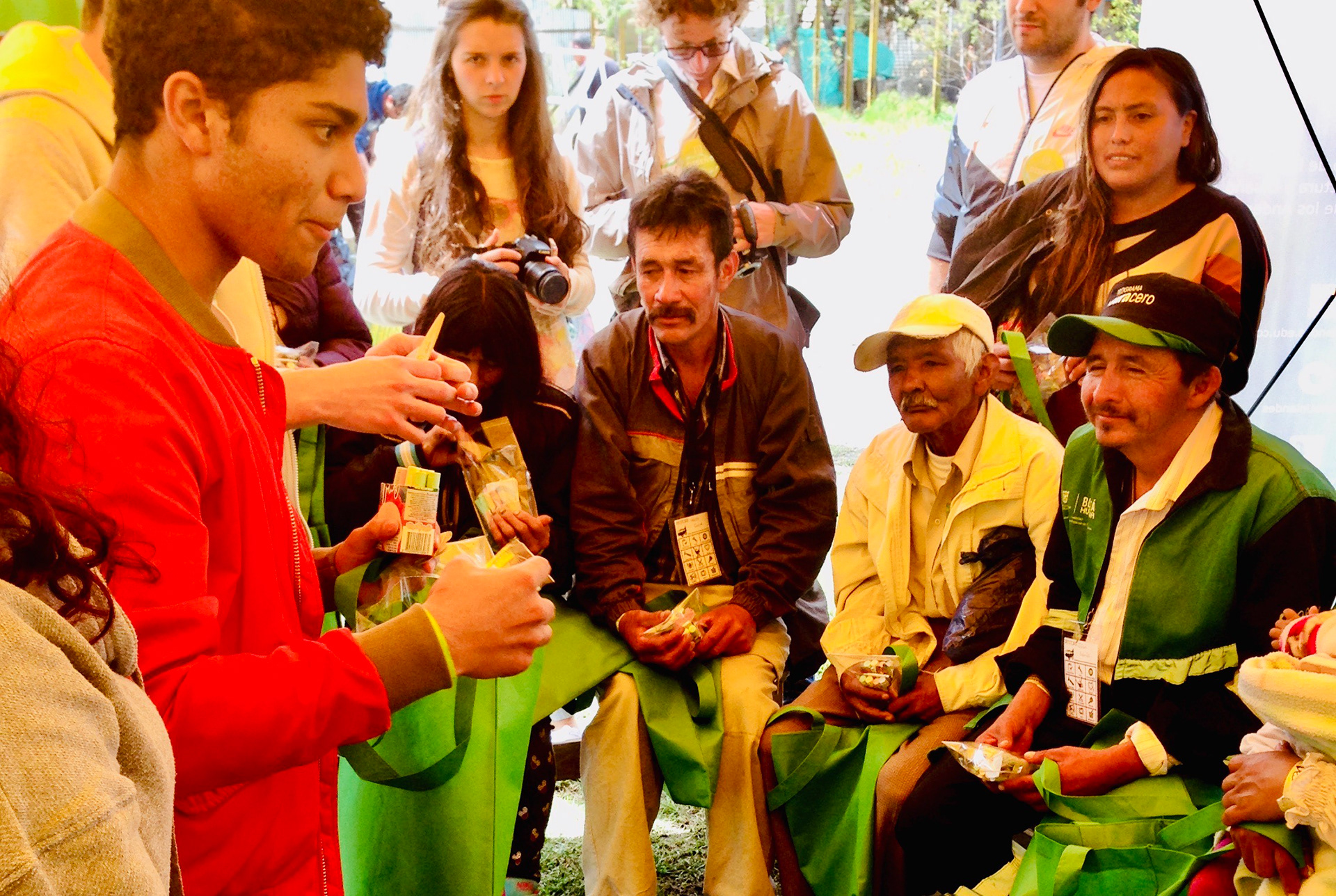
Pit Stop 3 - Identity & personalization
How can we dignify the work of waste pickers and give them a sense of belonging? How can we use the design to value the profession and personality of the recycler? How can we make the group membership visually visible?
Professors: Santiago de Francisco, Roxana Martínez & Carolina Rojas
Students: Andrea Catalina Amin, Lorenzo Ruiz López, Juan David Sánchez Rentería, Daniela Breton Fuentes, Carolina Parra Sánchez, Diana Carolina Echeverry Quiroga, Natalia Otero, Samuel Echeverry, Daniel Rodríguez, Daniel Rubiano, Jairo Yesid Castiblanco, Sergio Lascano, Lucía Peña, Manuel Acero, Germán Izquierd
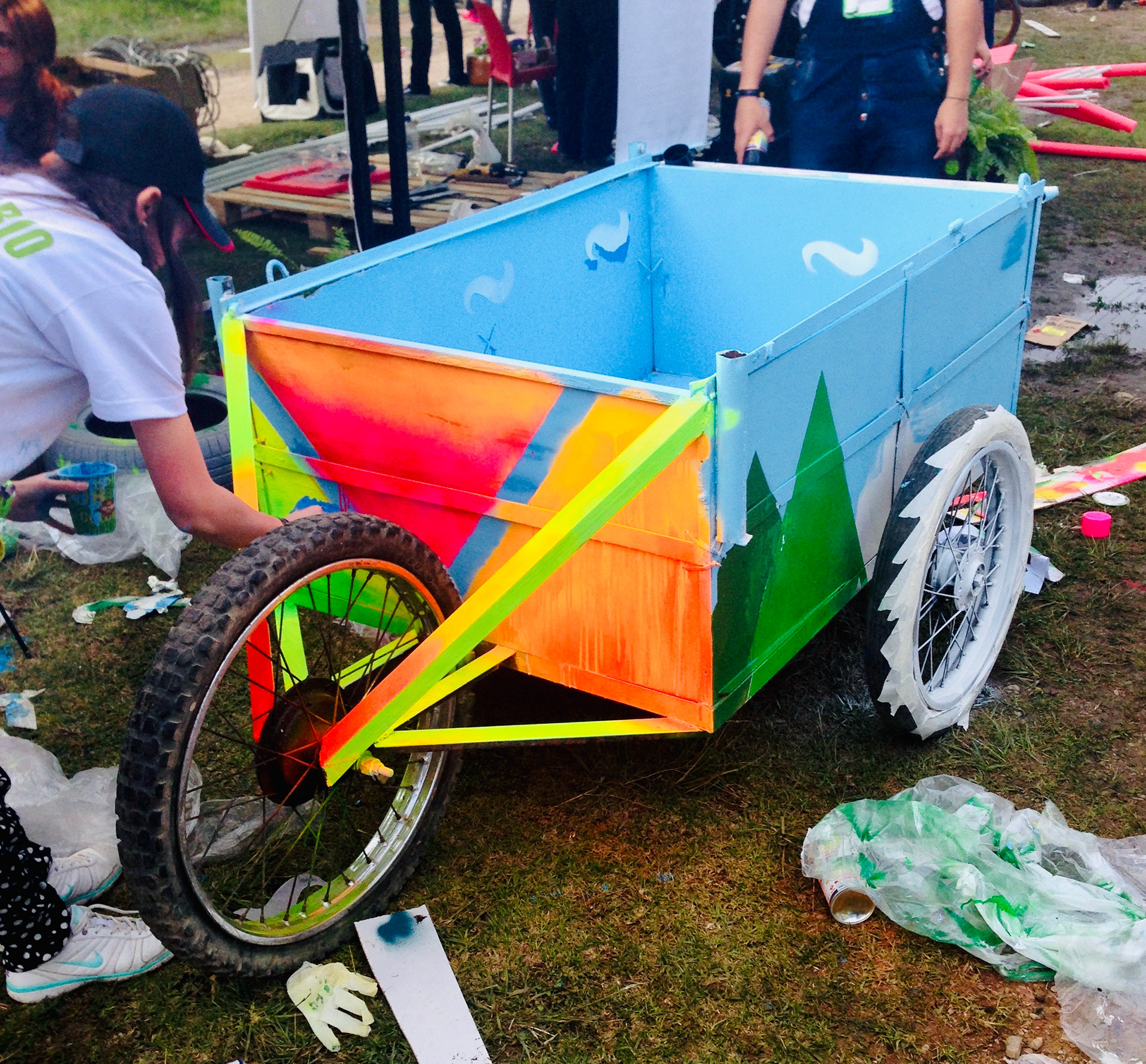
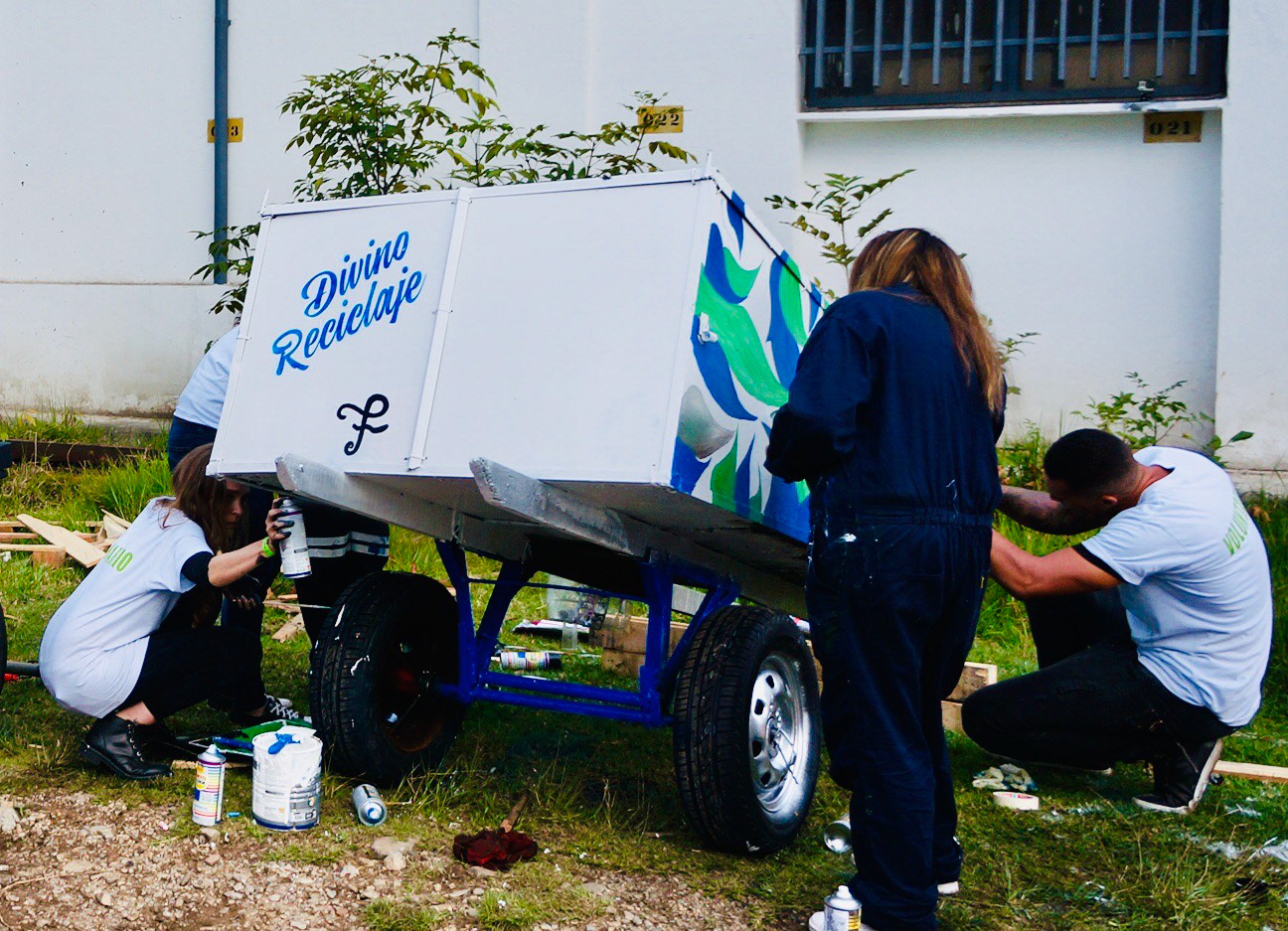
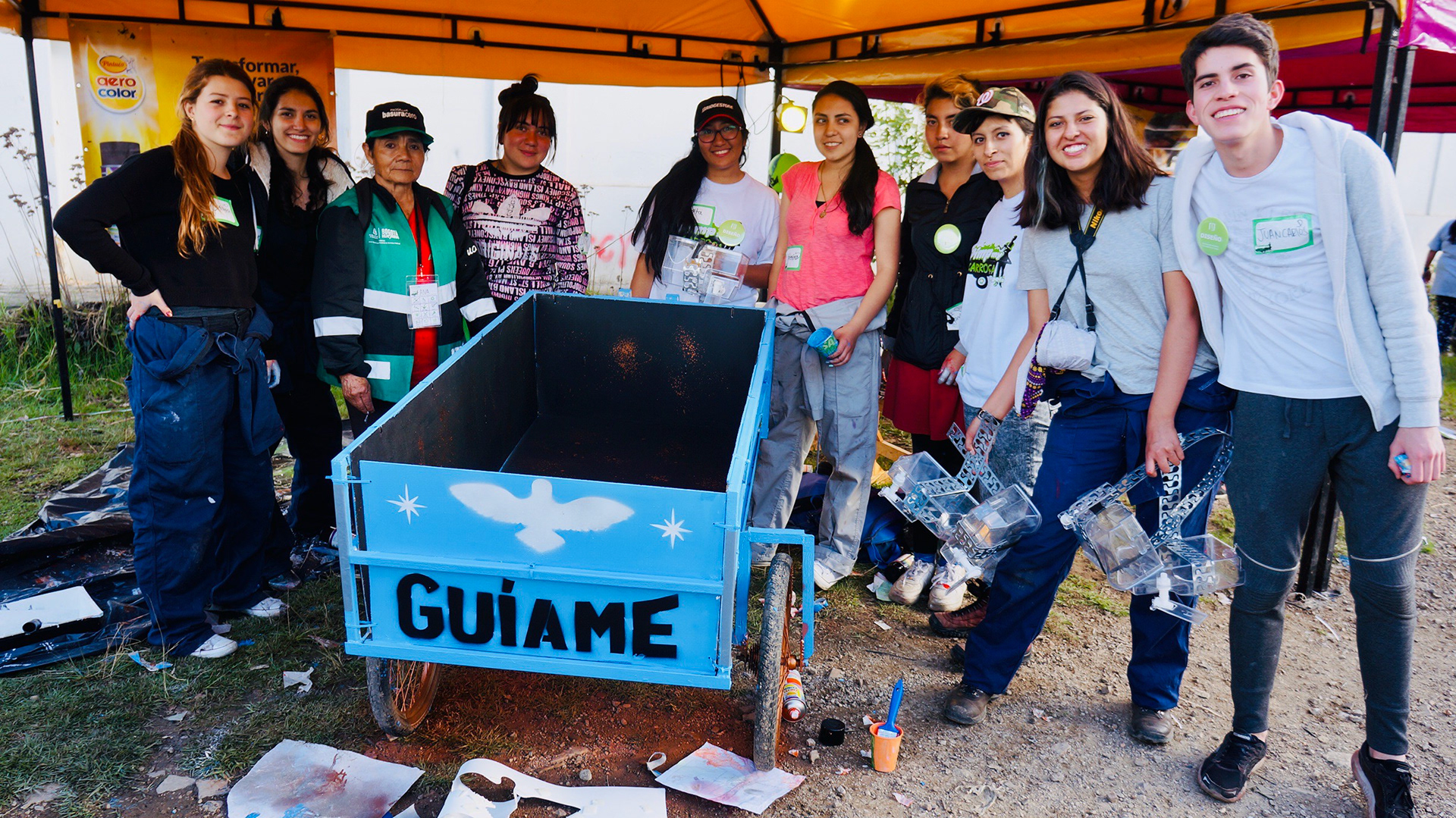
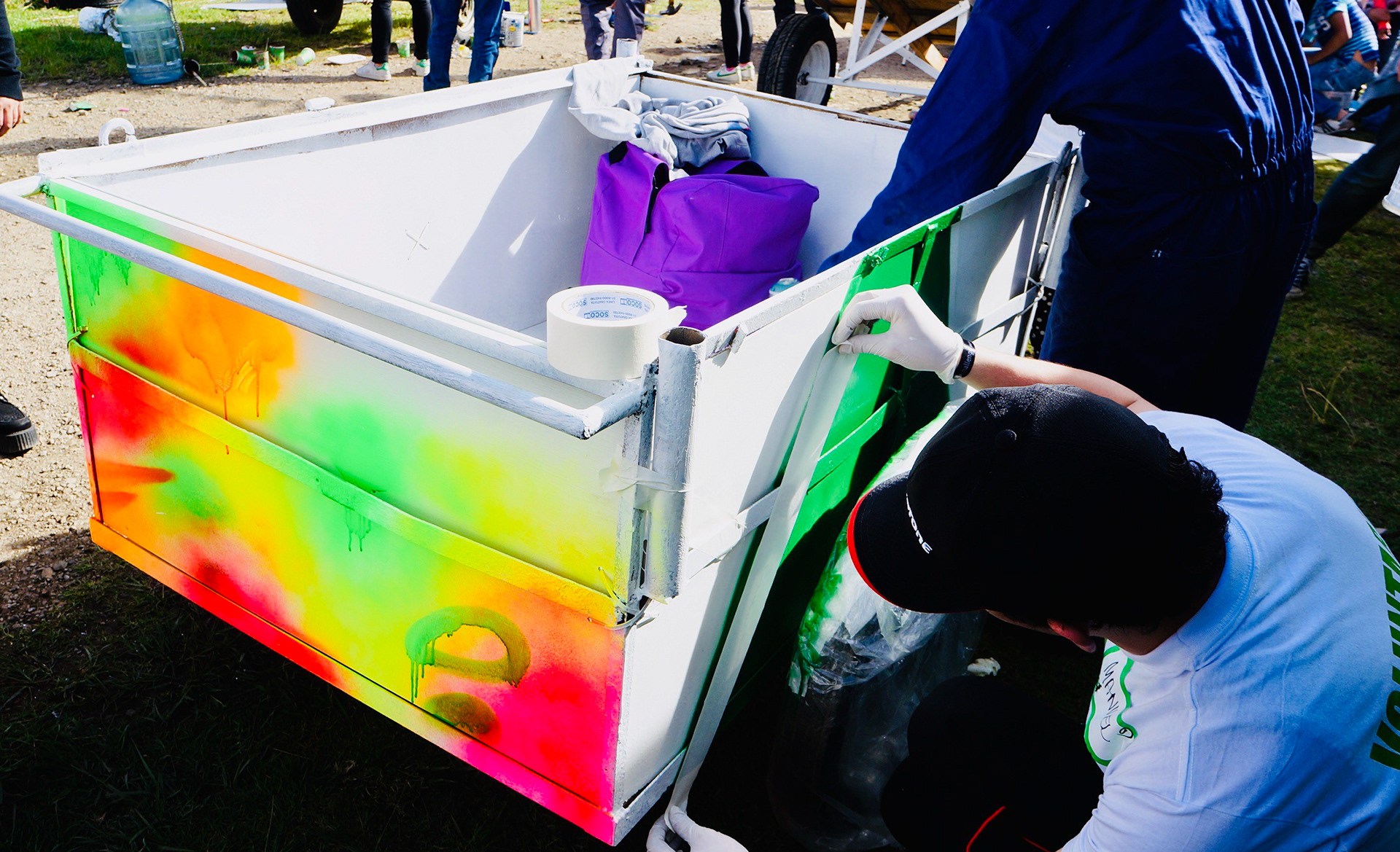
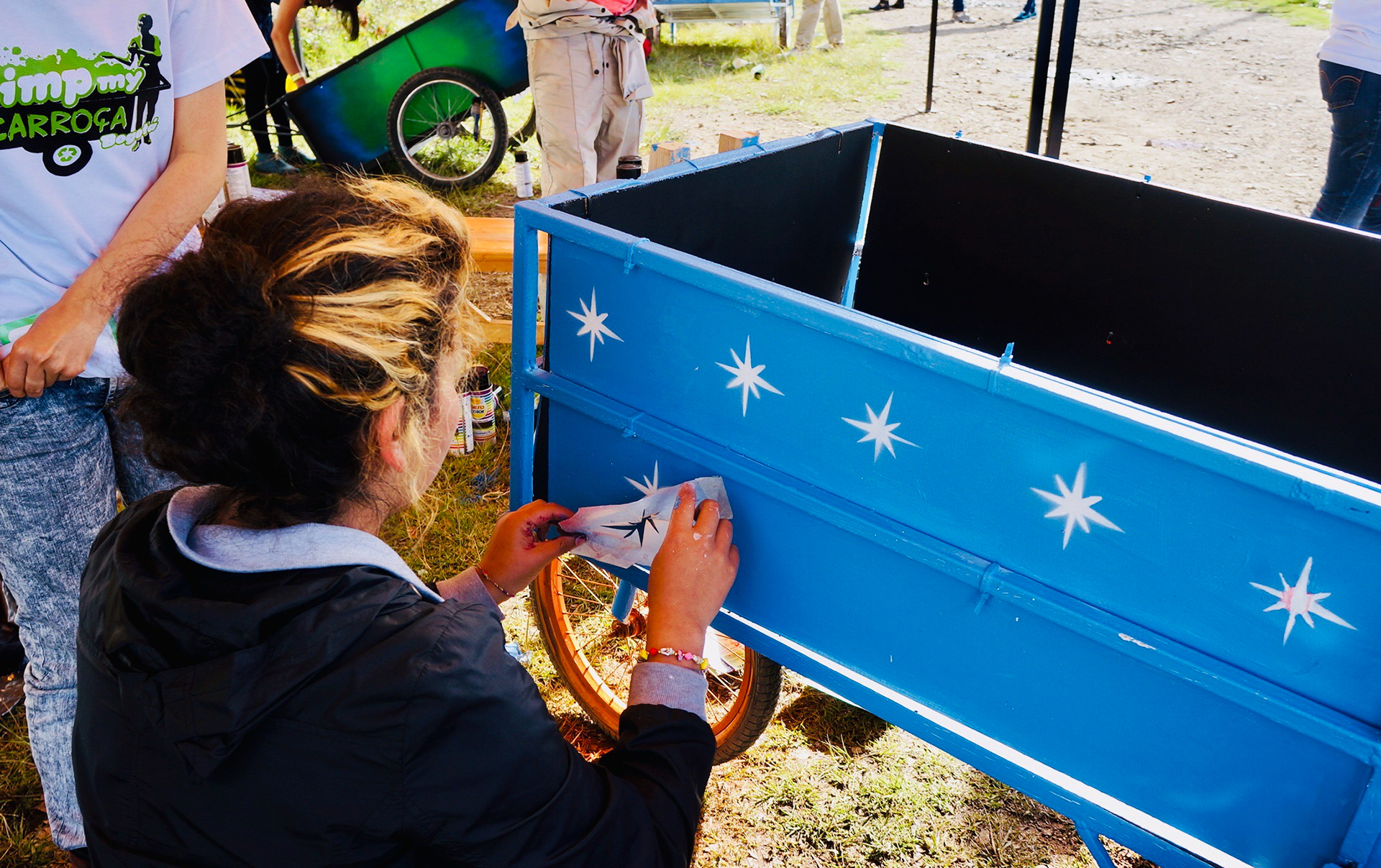
More photos of the project you can see here.
Partners:
